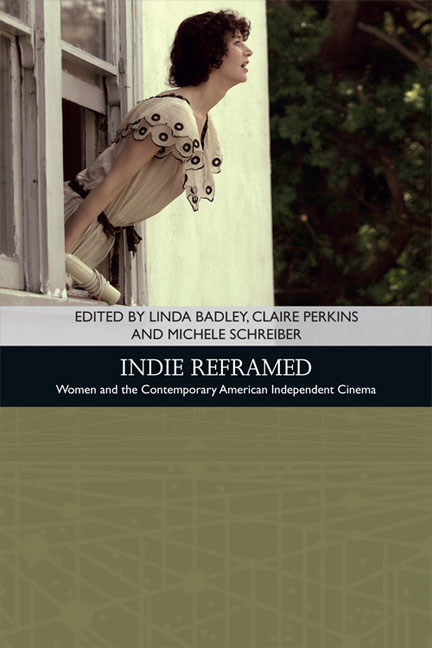9 - Black Women, Romance and the Indiewood Rom Coms of Sanaa Hamri
Published online by Cambridge University Press: 10 November 2020
Summary
I very clearly stated that my colleague had challenged every form of filmmaking because she was a Black woman standing behind the camera and she put Black women in front of it! That combination alone defied every form.
Carmen Coustaut (1998: 140)Images of romantic love on film tend to reduce Black women to sex objects and male adornment – in other words, he looks good if she looks good hanging off his arm. But I always want to know who she is.
Carmen Coustaut (1998: 141)BLACK WOMEN DIRECTORS IN CONTEMPORARY AMERICAN CINEMA
In 2014, Ava DuVernay became the first black woman director to be nominated for the Golden Globe's Best Director award. An important first, this was quickly followed by the Academy Awards’ Best Picture nomination for her film Selma, the first film by a black woman director to be nominated for that prestigious category. Widespread critical praise for Selma and for its star David Oyelowo, who plays Martin Luther King, Jr, increased the public profile of both DuVernay and Oyelowo. However, controversy swirled around the conspicuous lack of nominations for DuVernay's directing from the Academy and the Directors’ Guild, and the fact that the Academy and the BAFTAs did not recognise Oyelowo's performance with nominations. The mixed recognition by awards institutions for a widely praised film featuring African Americans both behind and on the screen gave rise to many opinion pieces about the representation of black Americans in film, the lack of diversity among members of the various awarding bodies, the low numbers of women directing feature films in Hollywood, and, most importantly, the even lower numbers and rarer occurrence of black women directing Hollywood films or feature films at all. DuVernay, however, is not the first black woman to direct a Hollywood feature film; she is the third. The first was French filmmaker Euzhan Palcy who directed Marlon Brando in the 1989 film adaptation A Dry White Season. The second was Darnell Martin who wrote and directed the 1994 romantic comedy I Like It Like That. The twenty years between Martin's first feature (which made her the first black American woman to direct a Hollywood film) and DuVernay's Golden Globe nomination for her first studio film should surely be read as a symptom of Hollywood's systemic discrimination against black women filmmakers.
- Type
- Chapter
- Information
- Indie ReframedWomen's Filmmaking and Contemporary American Independent Cinema, pp. 154 - 168Publisher: Edinburgh University PressPrint publication year: 2017



